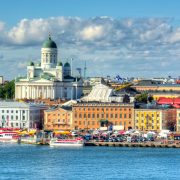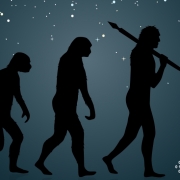One of the most important concepts in economics is time preference. It’s a bit hard to get one’s head around. A high time preference signifies presentism – an individual with high time preference wants everything now, now, now. An individual with lower time preference is willing to forego some present consumption, and to save and invest for the future, feeling that they will value future goods higher than present goods.
In societies that display, on average, a lower rather than a higher time preference, there will be more net investment, more capital formation and greater capital accumulation. Production becomes more sophisticated. Labor becomes more productive and wage rates rise. More people become saver-investors, and they identify more and more sophisticated and beneficial future-improving projects in which to invest. Future incomes rise more; the social time preference rate becomes lower and lower. This tendency has been called the process of civilization.
The tendency will continue and civilization will progress unless there is interference in the freedom of individuals to exercise their property rights as saver-investors. One type of interference is crime: theft, fraud, or physical violence. To combat this, the saver-investor will divert some funds towards defense: safety products, insurance, security and the like. Although this use of funds is not as productive as other forms of investment, the diversion does not typically obstruct the process of civilization to a major degree. Criminals are usually in the minority and less sophisticated than their targeted victims.
This changes when property rights violations take the form of government interference.
In Democracy, The God That Failed, Hans-Hermann Hoppe writes:
The distinctive mark of government violations of private property rights is that, contrary to criminal activities, they are considered legitimate not only by the government agents who engage in them, but by the general public as well.
Hence in these cases, a victim may not legitimately defend himself against such violations.
Government interventions that tend to increase the time preference of citizens include taxation of property and income (reducing the individual’s stock of present goods and therefore shifting focus to shoring up the present rather than investing for the future); government money-printing, which has the same effect as criminal counterfeiting; and any regulation concerning what the individual property owner may or may not do with his or her property.
Because of their perceived legitimacy, government violations affect time preferences n a fundamentally different fashion than criminal violations. Crime occurs only intermittently, but government institutionalizes violations into a predictable and unavoidable future pattern. The future-oriented actions of saver-investors become more constrained and everyone becomes more present-oriented. The natural tendency to build an accumulation of capital goods may come to a standstill or even be reversed. People become less farsighted. This is the process of decivilization.
Politicians and the employees of democratic governments have no incentive to concern themselves about this process of decivilization. Their time preference is high. They are not the owners of government, but temporary caretakers. Their incentives are to take advantage of their position as much as possible and as quickly as possible in the short term. They will want to maximize current government income and increase current government power. Taxes will increase, more government money will be printed, more debt will be accumulated, and more government employees will be hired (and the kinds of people who take the jobs will exhibit high time preference and limited farsightedness).
The state will be increasingly transformed into a “welfare state”, where income redistribution is implemented via transfer payments, “free” goods (like healthcare), and “protective” laws, all directed at transferring income and wealth from low time preference / high productivity citizens to high time preference dependents. The future becomes more uncertain for producers, and those who have produced little or nothing are rewarded. More people will opt to join the latter group.
This trend of decivilization is inevitable in a democracy. When unproductive people, such as politicians and government employees, can aspire to powerful roles in a government that has a legitimate monopoly on the transference of income and wealth to reward and reinforce non-productivity, they will seize the opportunity it represents and exploit it to the fullest. When high time preference non-governmental workers can become recipients of present goods from government-authorized redistribution, as a payment for not producing, or a subsidy for low production, more people will join those ranks.
The only defense against this trend of decivilization is to change public opinion from legitimizing democracy and social-democratic government. Our theory of government is wrong. We must change it.













